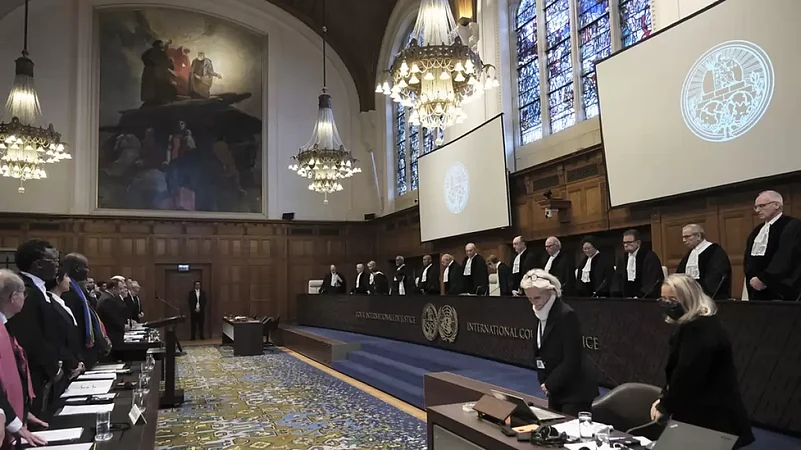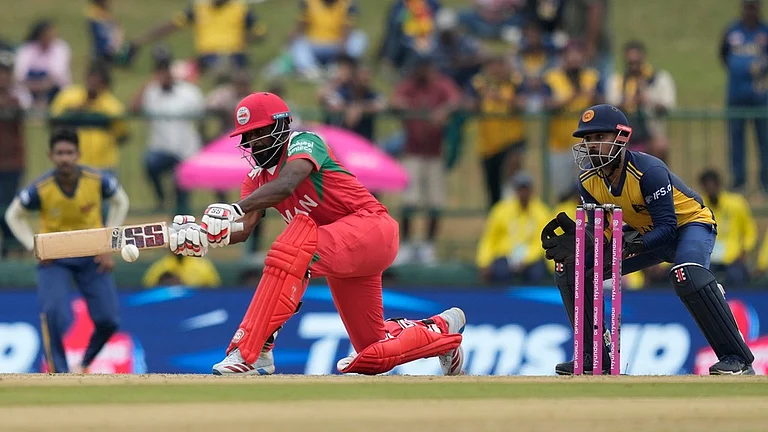South Africa has taken Israel to the International Court of Justice (ICJ), The Hague, opening a landmark hearing into decades of debate surrounding whether or not Israel’s occupation in Gaza amounts to a case of genocide. In an 84-page petition, South Africa has formally accused Israel of engaging in acts that amount to the genocide of Palestinians during its military campaign over the last three months in Gaza, in response to the Hamas airstrikes of October 7.
At the heart of the matter is the 1948 UN Convention on the Prevention and Punishment of the Crime of Genocide, which was drawn up in the aftermath of World War II and the Holocaust. An urgent appeal in ICJ was lodged by Pretoria, the capital city of South Africa, demanding Israel to "immediately suspend" its military operations in Gaza. Israel’s relentless airstrikes and ground offensive have killed nearly 24,000 people, mostly women and children, and displaced almost the entire Palestinian population in and around Gaza. However, the Jewish-dominated nation has dismissed the case as "atrocious" and "preposterous" and will lay out its defence on Friday.
While Israel seeks to defend itself in a high-stakes showdown before a panel of judges in the Great Hall of Justice at ICJ, let us first understand what amounts to genocide and if the UN Genocide Convention stands ground in this decades-old conflict.
What is genocide?
The term ‘genocide’ was coined by Raphael Lemkin, a Polish lawyer, in 1944 in his book Axis Rule in Occupied Europe. The word was coined putting together the Greek prefix genos, meaning race or tribe, and the Latin suffix cide, meaning killing. Lemkin used the term for the first time in response to the Nazi policies of systematic erasure of European Jewish people during the Holocaust on the heels of World War II. It was also used in the context of past instances where targeted actions were aimed at the destruction of a community or particular groups of people, like the Armenian genocide.
In the years that followed, Lemkin spearheaded the campaign for legal recognition of the word ‘genocide’ to have it codified as an international crime. This was also the time when the United Nations was in its foundational stage, with international leaders coming together to organise a general assembly for world peace. Prior to that, in the 1930s, he had attempted to present his ideas to the League of Nations, proposing to outlaw what he called “barbarity” and “vandalism”. But he failed.
It was on 9 December 1948, during the third session of the United Nations General Assembly, that the member states unanimously accepted the term ‘genocide’ and decided to criminalise it in an international treaty called the Convention on the Prevention and Punishment of the Crime of Genocide (CPPCG), or the Genocide Convention. It came into effect in January 1951.
Since then, every year on December 9, the Office on Genocide Prevention and the Responsibility to Protect has marked the day to represent a global commitment towards human rights.
How does UN Genocide Convention define genocide?
Consisting of 19 articles, the Convention on the Prevention and Punishment of the Crime of Genocide (CPPCG) became the first instrument that legally defined the term coined by Lemkin. Under Article 2, genocide is defined as a list of acts "committed with intent to destroy, in whole or in part, a national, ethnical, racial or religious group". These acts include:
(a) Killing members of the group;
(b) Causing serious bodily or mental harm to members of the group;
(c) Deliberately inflicting on the group conditions of life calculated to bring about its physical destruction in whole or in part;
(d) Imposing measures intended to prevent births within the group;
(e) Forcibly transferring children of the group to another group.
Further, Article 3 of the convention defines which of the acts are punishable under international law. These include – genocide, conspiracy to commit genocide, direct and public incitement to commit genocide, attempt to commit genocide, and complicity in genocide.
No one is immune from the charge of genocide. Any person found committing these acts shall be punished, whether they are constitutionally responsible rulers, public officials or private individuals. While the first draft of the convention included political killing, it was soon removed after the USSR and a few other nations did not accept that actions against groups having certain similar political opinions constitute as genocide.
A total of 153 countries are party to the convention, including Israel. Meanwhile, 41 UN members are yet to be ratified or acceded.
Why has South Africa cited Genocide Convention in ICJ?
South Africa’s case at the Hague-based UN court stated that Israel, particularly since October 7, “has failed to prevent genocide and has failed to prosecute direct and overt incitement to genocide” against the Palestinian people, a distinct national, racial and ethnical group.
The acts, it adds, include “killing Palestinians in Gaza, causing them serious bodily and mental harm, and inflicting on them conditions of life calculated to bring about their physical destruction”.
On day 1 of the ICJ hearing, South Africa presented its case and sought interim relief for Palestinians, asking the ICJ to order an immediate suspension of all Israeli military operations in Gaza as an interim measure.
Several countries including the Organisation of Islamic Cooperation (OIC), Malaysia, Turkey, Jordan and Bolivia have backed South Africa’s case. Meanwhile, the United States has voiced an opposition to the case, while Israel’s other Western allies have so far maintained silence.
The initial proceedings are expected to last a few weeks after which a sentencing is expected from the court. However, experts believe that the case could go on for years.


























